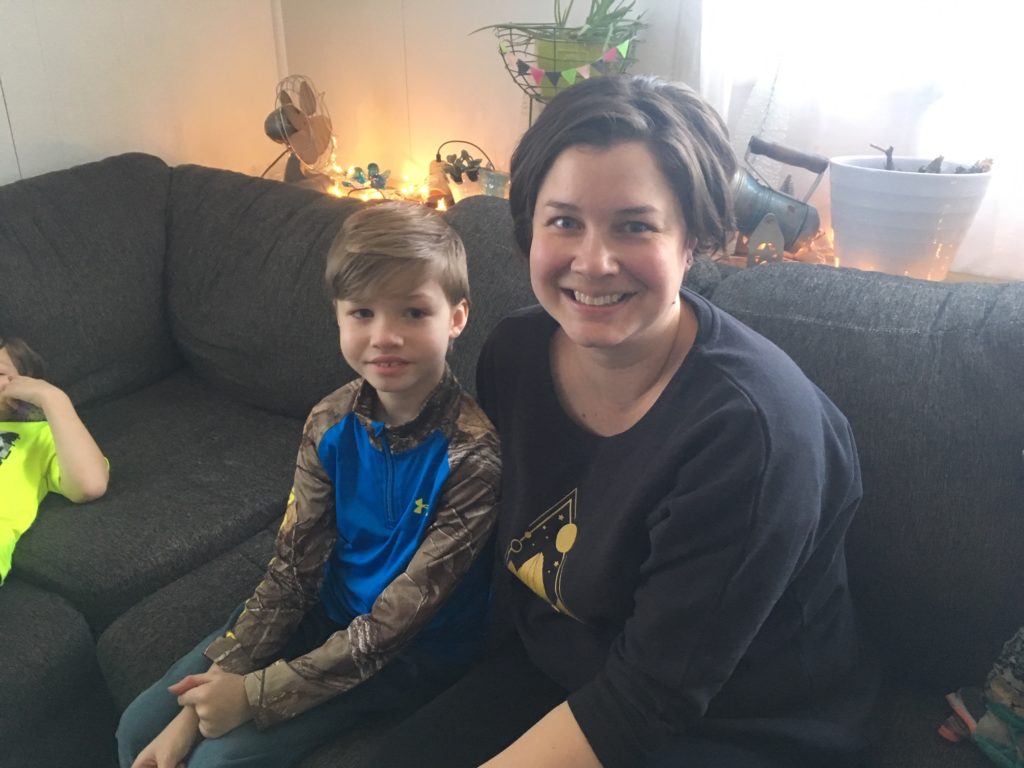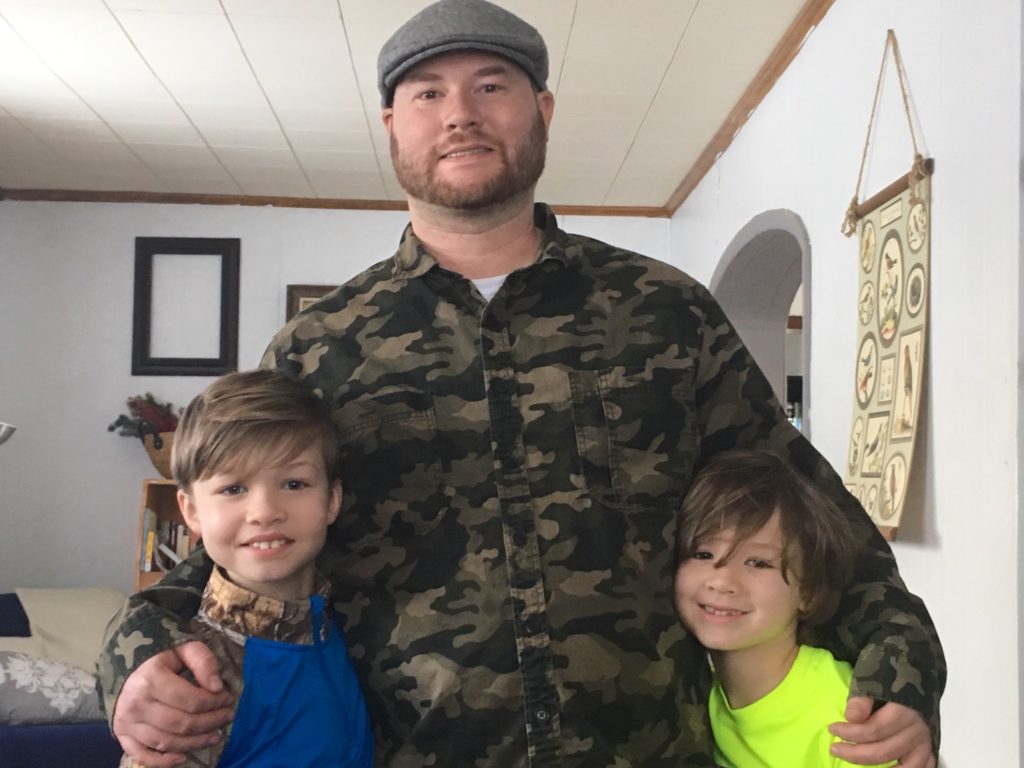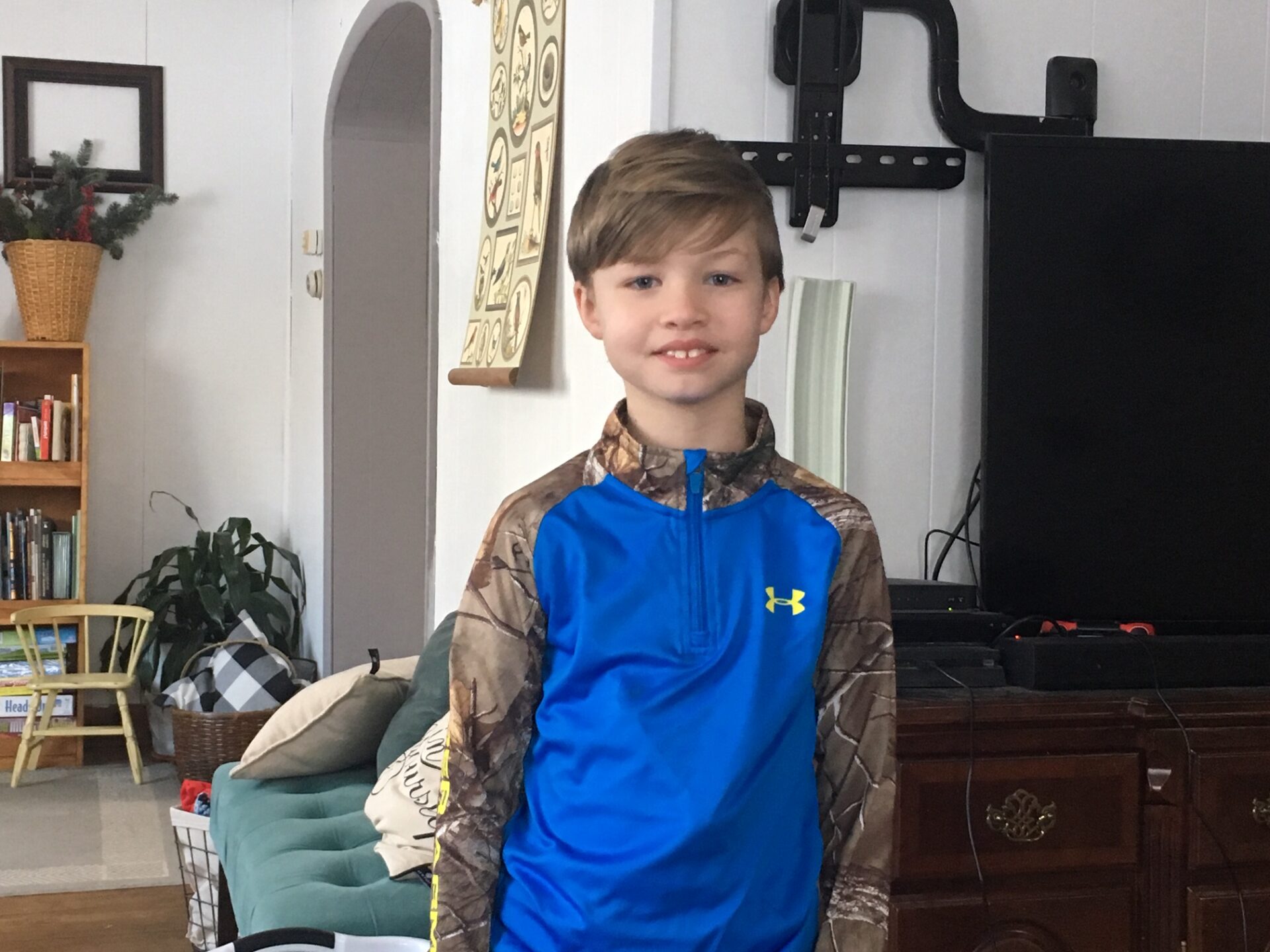YOU LOOK AT him and you see a handsome nine-year-old boy. A wave of brown hair swept across his forehead, a shy smile, a gentle voice.
But there’s more to Will Chittle of Negaunee than that. Much more.
His mother Janice, who works out of her home, will tell you about him.
“It was a normal birth but then he wasn’t eating and he was crying all the time,” she says, “and his pylorus (the connection between the stomach and intestine) was closed up. They had to open it up but he didn’t do well with the surgery, he stopped breathing because he had a restricted airway…and that’s when it all started.”
What’s followed has been nine years of frequent hospital visits, more than twenty procedures, three incidents that brought him near death, countless blood draws, hours upon hours of research and study, but ultimately no satisfying answers.
The Chittle family has heard all the possible names for Will’s chronic illness over the years–an auto-immune disease, neuromuscular problems, autonomic neuropathy, mitochondrial disease, and others, but they sometimes just seem like words. Educated guesses about a strange, mystifying, complicated disease.
“They think they’ve figured out what’s wrong with him,” Janice explains, “but we still don’t have a name for it. We just know his symptoms.”

“My head hurts,” Will tells you. “I get migraines. And right now I have pain in my feet. It hurts to walk.”
He frequently has to use a wheelchair when he attends school at Lakeview Elementary.
Truth be told, he has pain throughout his body much of the time. Two tubes inserted into his body are constant companions.
Ask him what he’d like above all, and he takes a moment to think about it, then says, quietly, “I’d like to fit in. Just fit in with other people and not feel different. Sometimes kids make fun of me.”
“He gets sad sometimes,” his father Matt, who’s a sales representative, says. “He’s gone from school so much and when he comes back, the other kids have moved on. And at the beginning of the school year, the kids are told to be careful with Will, so then they don’t want to play with him. They don’t want to include him in the rough-housing or anything.”
There are few things worse for a nine-year-old boy than to not be accepted as one of the guys.
And for parents, there’s probably nothing worse than seeing your child wracked with pain…and sad.
Matt and Janice, by the way, are raising two other sons–seven-year-old Henry and ten-month-old Theodore. Both, thankfully, have no serious medical problems.

But there are other burdens for the Chittles. The medical debt, now $75,000. The constant travel to and from hospitals. The confusion and inconsistency with Medicaid coverage and with Social Security disability insurance. The endless phone calls to doctors, hospitals, and politicians pleading for guidance and help.
“For all parents of special needs children,” Janice says, “it’d be nice if we could just take care of our child and not have to worry about the bureaucracy.” She pauses for a moment. “Sometimes I’ve had breakdowns…”
Their community at Northiron Church helps–sometimes taking care of the Chittles’ two other boys, once remodeling their bathroom to make it handicapped-accessible, always being there to lend a helpful hand and sympathetic ear.
“I can call my pastor’s wife at two in the morning if I’m bawling,” Janice says, “and she’s there for me. All the women are supportive.”
That eases the burden.
And there’s something else that gives her and the entire Chittle family hope. Medical advances, specifically genetic testing. If doctors could identify the gene in Will’s body that is malfunctioning, they might, at the very least, be able to ease his pain and give him something close to a normal life.
That’s all he wants right now: To not hurt so much and to fit in with the other kids.
Doesn’t seem like too much to ask.


